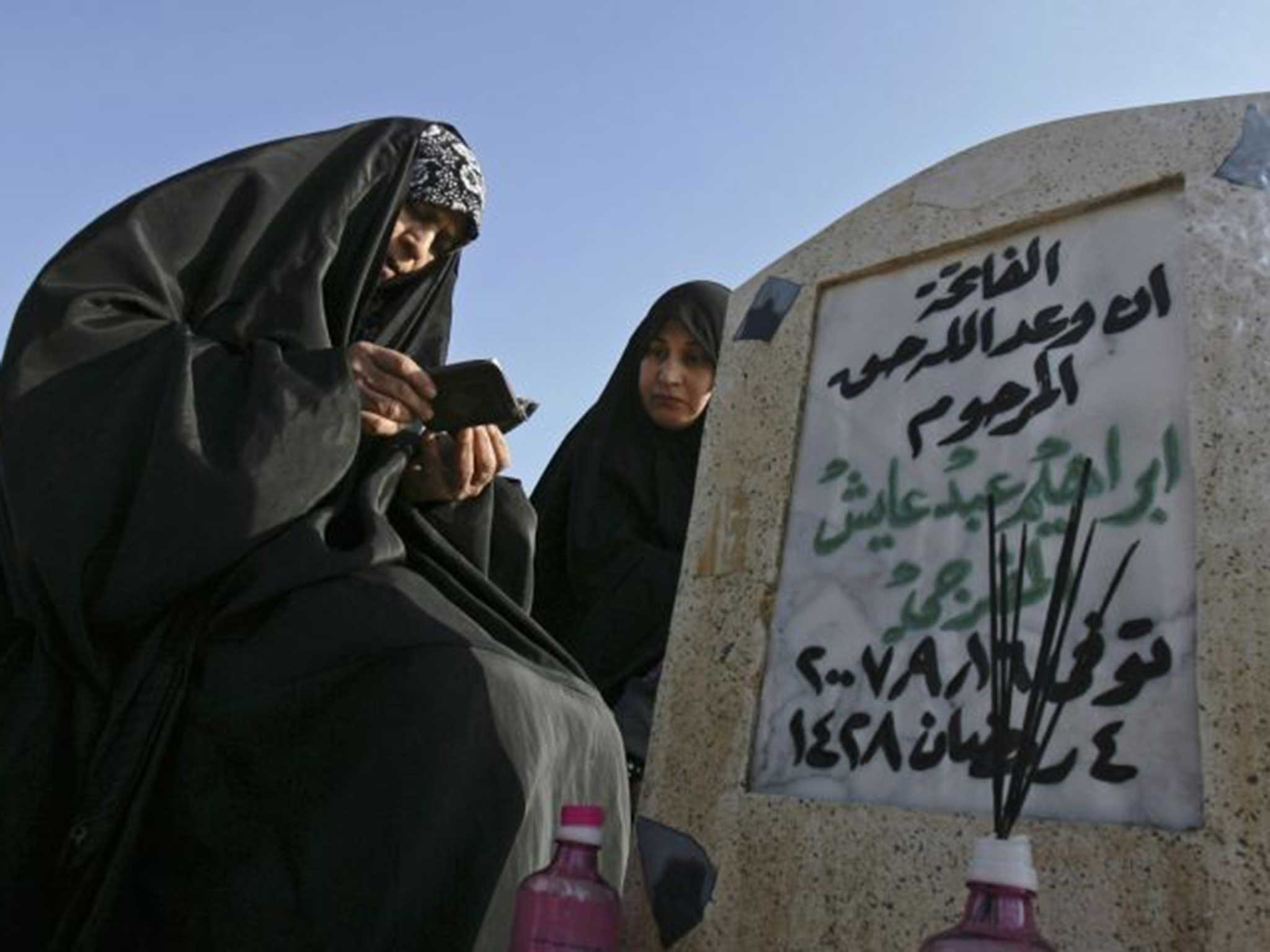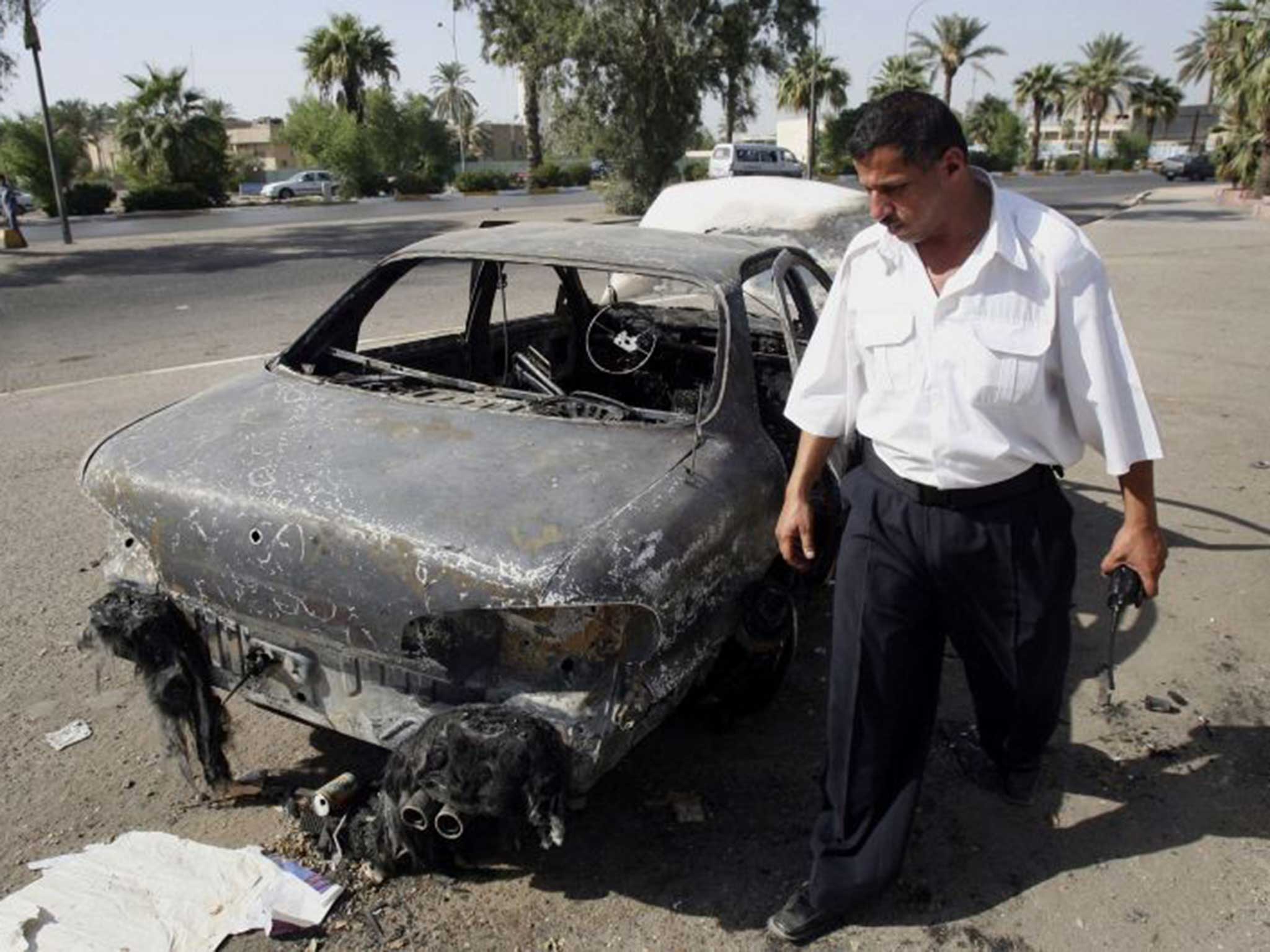Blackwater mercenaries face justice for bloodbath in Baghdad that caused 14 civilian deaths
Four employees await the verdict of a US court for 2007 killings

It has been seven years since guards with the worldwide security firm Blackwater turned Baghdad's Nisour Square into a shooting gallery, killing 14 local civilians "without cause", sparking fury around the globe and plunging the United States into a spasm of soul-searching over what it had wrought in Iraq. This week as the world is once again focused on Iraq, at last justice will be done – or attempted.
That is the burden placed on a jury in a federal court in Washington DC, which since June has been hearing testimony in the trial of four Blackwater employees who were in the square when the conflagration started. "The jurors' job is a search for truth," US Attorney Anthony Asuncion asserted in his closing argument on Wednesday.
The fog of the Iraq war and certainly of events in that square on 16 September 2007 has swirled thick in the courtroom of US District Judge Royce Lamberth for 10 weeks. Dozens of survivors and relatives of those who died were flown in from Iraq as witnesses. So gruelling was some of the testimony one juror was excused by the judge because she said she could no longer sleep. Now it's over: jury deliberations are set to begin on Tuesday.
Much of the world – and certainly the citizens of Iraq – may have reached their verdicts long ago: the mercenaries of Blackwater, which has since changed its name twice in an effort to shake off the legacy of Nisour, ran amok, opening fire with complete contempt for the lives of innocent Iraqis, because of a wholly imagined threat to a convoy that was carrying a US State Department official.

The trial is a moment, potentially, for the US to offer some amends to Iraq for what happened in the square, to admit to an atrocity that should never have happened. And it is a moment to apply just a little, and very belated, salve on the souls of those Iraqis whose family members were slaughtered. It may also offer a chance to the US to feel just a tiny bit less guilty. Nisour Square was arguably the nadir of America's rip through Iraq, rivalled only by the unveiling of the abuse of prisoners by US soldiers at Abu Ghraib.
Three of the defendants – Paul Slough, Evan Liberty and Dustin Heard – are facing manslaughter charges. The fourth, Nicholas Slatten, is accused of murder. Some of their former colleagues from Blackwater, which had been contracted by the State Department to provide security in Baghdad, appeared as prosecution witnesses.
"These men took something that did not belong to them; the lives of 14 human beings... They were turned into bloody bullet-riddled corpses at the hands of these men," Mr Asuncion told the jury in closing arguments. One man, he recalled, had told the court of opening the door of a car caught in the gunfire "and his son's brains fell out at his feet".
Nobody has contested that the bullets that killed 17 people that day and seriously wounded another 20, were fired by employees of Blackwater or that they had made a terrible mistake. But key to the case is the defence assertion that the men were reacting to what they in the heat of the moment thought was a legitimate threat. "There's a lot of tragedy here," said William Coffield, a defence lawyer. "But it's not the fault of these four."

One car bomb had already gone off that morning and the Blackwater team was securing the square so the convoy carrying the US official could pass through as it rushed to the protected Green Zone. One focus of the trial was a white Kia which, according to the defence, began to move forward while other traffic was stopped, prompting the defendants to fear it was another car bomb. The other is a second contention by the defendants – that they at the same time came under AK-47 fire, they assumed from insurgent snipers in the area.
The car, as it turned out, was being driven by a medical student. According to the prosecution, its movement forward occurred only after he was shot. His mother, in the passenger seat, was also shot dead. Both were incinerated when the car caught fire. Meanwhile the prosecution rejected the claim of incoming fire. "There was not a single dead insurgent on the scene," Mr Asuncion said. "None of these people were armed."
Mr Slatten faces a possible life sentence if convicted and the other three defendants 30 years each behind bars. Arguably, others should have been in the dock with them. Even leaving aside the issue of how the US found itself in Iraq in the first place, also worth examining is the State Department willingness at the time to give so much responsibility to a private mercenary outfit with so little accountability. The men may be acquitted, of course. If the jury returns four convictions, then perhaps there will be a little easing of one nation's conscience and another nation's anger. But even that might not feel much like justice.
Join our commenting forum
Join thought-provoking conversations, follow other Independent readers and see their replies
1Comments